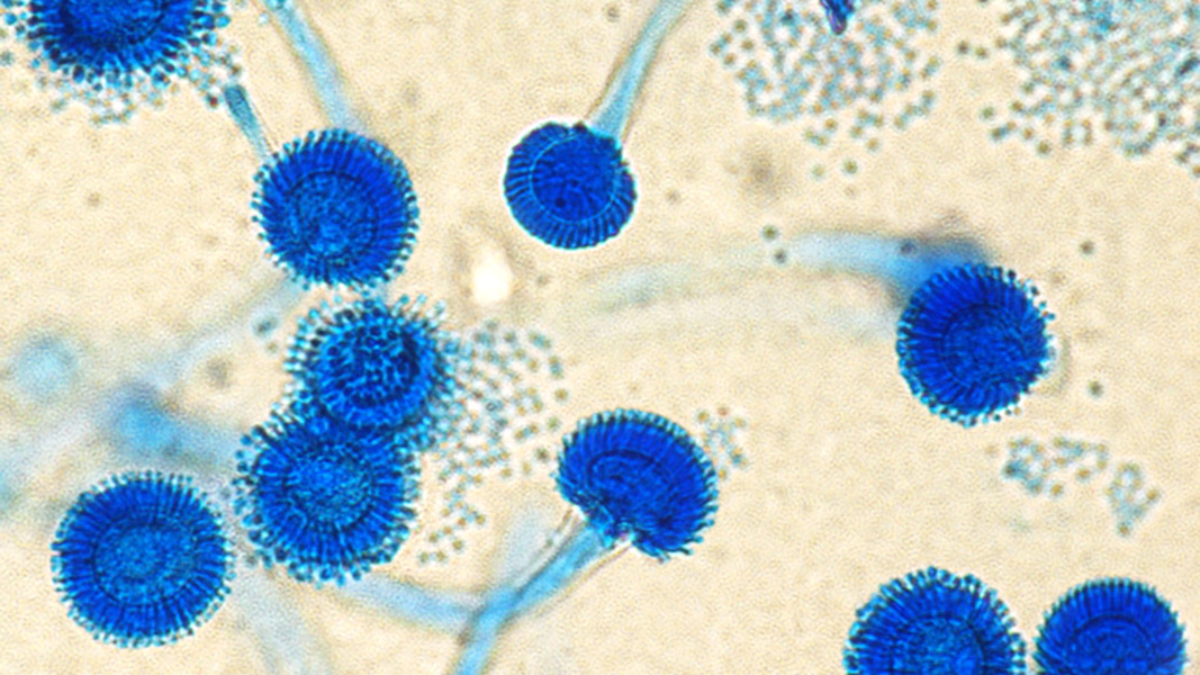
A looming threat is quietly taking shape across continents, driven by warming climates and limited medical preparedness. A newly published study has revealed that a deadly fungal pathogen—Aspergillus fumigatus—could soon endanger millions across Asia, Europe, and the Americas. The pathogen, commonly found in organic matter like compost, is now emerging as a serious health concern due to its ability to thrive in higher temperatures and exploit weakened immune systems.
Table of Content:-
Rising Temperatures Fuel Fungal Growth
As climate change intensifies, the warm and humid environments that fungi like Aspergillus require to flourish are becoming more widespread. The study warns that rising global temperatures are pushing the world toward a tipping point—one where fungal infections may become commonplace in areas previously unaffected.

Co-author of the study, Norman van Rhijn, emphasised the gravity of the situation. He noted that ecosystems and pathogen behaviors are shifting dramatically, stating, “In 50 years, where things grow and what you get infected by is going to be completely different.” These changes could lead to major disruptions in public health systems as well as biodiversity.
Aspergillus Fumigatus: A Resilient Pathogen
What makes Aspergillus fumigatus especially dangerous is its adaptability. It can grow rapidly in high-heat environments like compost piles, conditions that mirror the human body’s internal temperature of 37°C. Its survival skills are so extreme that fungi from the same group have even been found inside the radioactive zones of Chernobyl.

This adaptability gives the fungus a unique advantage when colonising the human body, particularly the lungs. Professor Elaine Bignell from Exeter University’s MRC Centre for Medical Mycology points out that the pathogen’s behaviour in the environment may be a crucial factor in its ability to infect humans. Once inhaled, its microscopic spores can trigger a range of respiratory illnesses, especially in individuals with asthma, cystic fibrosis, or compromised immune systems.
Also Read: CDC Links Salmonella Outbreak to Backyard Chickens: 7 Infected Across Six US States
Uncharted Territory in Fungal Research
One of the most troubling aspects of the fungal threat is how little we understand it. The fungal kingdom remains largely unexplored, with only around 10% of an estimated 1.5 to 3.8 million species formally described. Even fewer have undergone genomic sequencing. This lack of information makes it difficult for researchers to anticipate which fungi could pose the next big health risk.

Scientists warn that the current trajectory of global warming, fueled by continued reliance on fossil fuels, could enable Aspergillus fumigatus to spread to 77% more regions by 2100. In Europe alone, up to nine million individuals may find themselves at increased risk of infection within this time frame.
Also Read: Leukaemia Breakthrough: New Test Spots Relapse Before Symptoms, Offering Life-Saving Head Start
Medical Response Lagging Behind
Despite the urgency, medical countermeasures are lagging. The development of new antifungal drugs remains woefully underfunded. Unlike treatments for bacterial or viral infections, antifungal research receives relatively little attention due to the perceived lack of profitability and high development costs. This financial hesitation may leave millions without effective treatments in the face of growing fungal resistance.
Experts argue that a proactive global strategy is required to mitigate this impending crisis. Investments in fungal research, climate action, and public health infrastructure are essential to protect vulnerable populations.
Bottomline
While Aspergillus fumigatus may not yet be a household name, its potential to wreak havoc is very real. As the climate warms and fungal pathogens continue to evolve, the world faces a silent but escalating biological threat. Without urgent intervention, this deadly fungus may soon become a persistent adversary, particularly for those least equipped to fight it. Is the global health system prepared for this fungal frontier? The answer may determine the fate of millions.
Also watch this video
How we keep this article up to date:
We work with experts and keep a close eye on the latest in health and wellness. Whenever there is a new research or helpful information, we update our articles with accurate and useful advice.
Current Version
